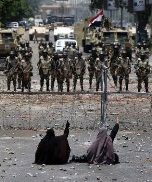Mujibur Rehman 8 May 2025
The Waqf (Amendment) Bill, 2024, alongside the proposed Uniform Civil Code, underscores the Narendra Modi government’s broader plan to reshape the sociopolitical landscape, particularly that of the country’s Muslim community. While the UCC has been a long-standing agenda of the Hindu Right – along with the Ram temple in Ayodhya and the abolition of Article 370 – it represents a more recent and potentially far-reaching intervention. Together, these legislative moves appear to be part of a concerted effort to realign the rights and identities of minority communities in accordance with a majoritarian vision.




